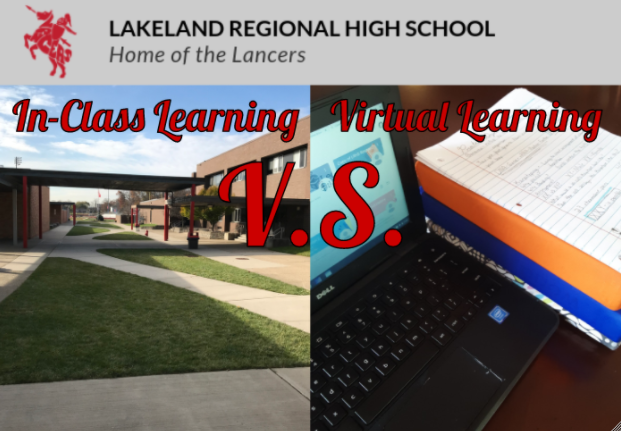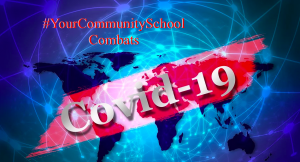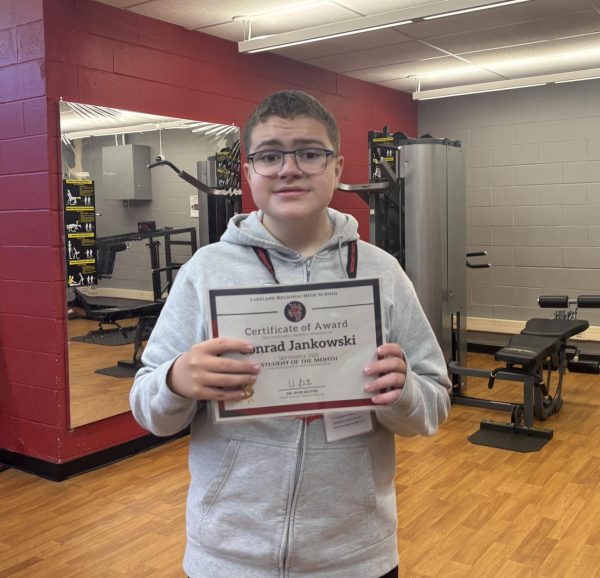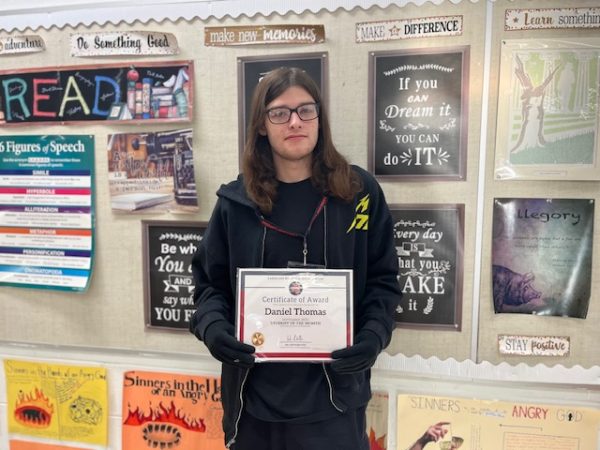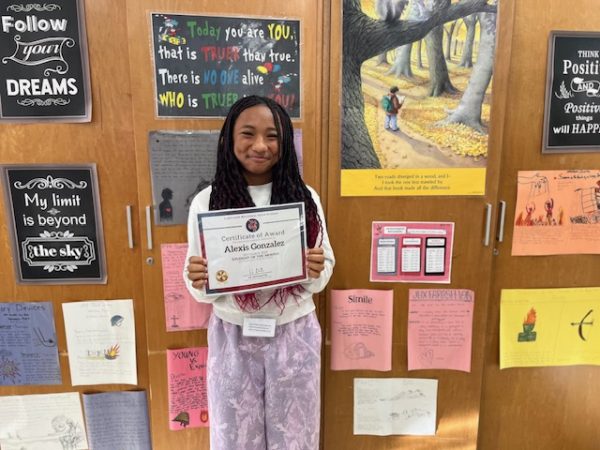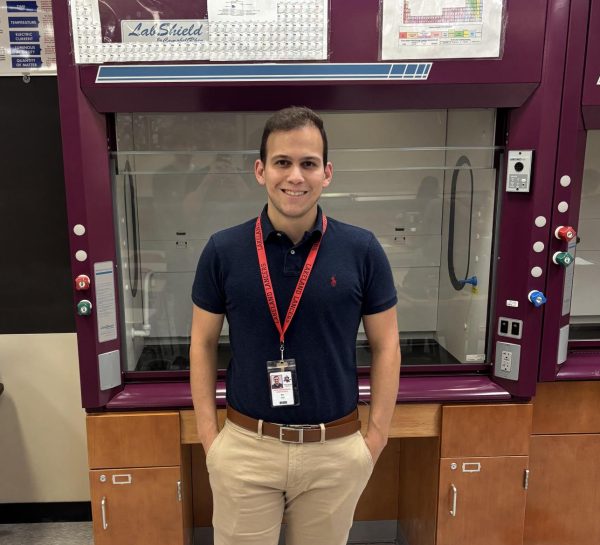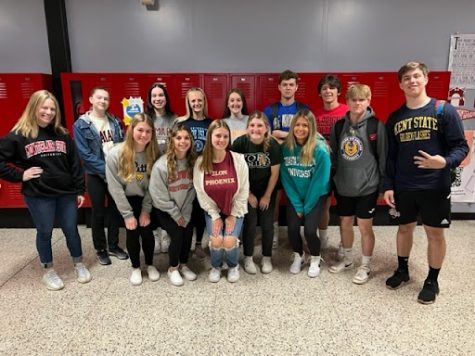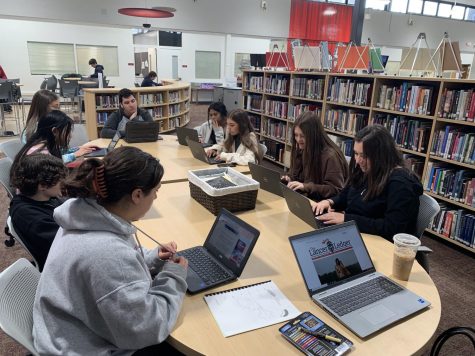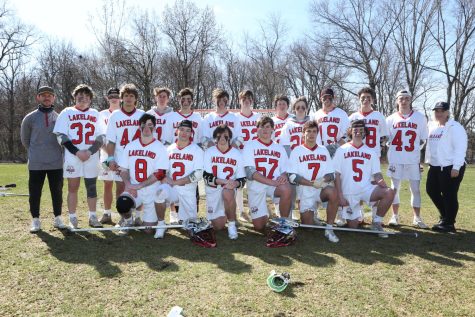Lakeland’s Virtual Learning: The Pros and the Cons
Courtesy of Lakeland Live Feed and Nathan Caldwell
There are many Pros and Cons when it comes to virtual learning.
With most school buildings in the USA shut down for the rest of the 2020 school year due to the COVID-19 pandemic, many will have their students work virtually to fulfill school year requirements. Digital or virtual learning has become the new normal for many students. Different schools have gone about teaching their students differently. Some students login to a video call during their class time and learn. Other students are allowed to work at their own pace and finish assignments posted by teachers. Lakeland Regional High School has opted for the latter. For many, adapting to this new normal may have been difficult. When it comes to virtual learning, there are many flaws. However, there are also many positives to it too.
For one, concepts are harder to grasp without a teacher teaching. If you have a question about an assignment, concept, or technicality, you must email the teacher. Oftentimes, teachers will respond quickly. However, sometimes it takes longer and waiting for one email to come back so you can finish your work is irritating, especially when it’s about a small detail. Additionally, the speed of responses does not compare to being able to ask a question in person. When in person, it’s easier to have a conversation and get help when you need it.
Another flaw of virtual learning is testing. Considering most students now have access to the internet during tests, many teachers have converted their in-class tests to open note style tests. This, while it may benefit students, does not truly judge one’s knowledge in the subject. Some teachers have tried to work on an honesty policy, but that does not prevent some students from cheating. Furthermore, if some students abide by the honor policy and some do not, then grades will incorrectly reflect the ranks and knowledge among peers.
Finally, virtual learning does not allow for much social interaction. While limiting social interaction and closing school buildings is the goal of social distancing, in a post-pandemic world it is a disadvantage of virtual learning. Students need social interaction to develop good relationships, especially at younger ages. Developing social skills is important for life and lack of interaction can lead to loneliness, isolation, and depression. While this is on a more extreme scale, virtual learning cuts off typical school experiences and interactions.

Virtual learning also has some positive benefits.
First and foremost, virtual learning saves time. Students don’t need to spend time on a bus, in homeroom, walking between classes, or in lunch and study hall. In LRHS, students save approximately 115 minutes without lunch, study hall, homeroom, and class transition time. Another additional 20 to 30 minutes would be saved from time spent on a bus. The new virtual learning system opens up another two hours per day to use to study, work on a project, or simply destress. Additionally, some teachers assign work that will not take up the full 80 minutes of one block. In general, if they work efficiently, LRHS students should see more time and less stress in their day.
Students can also develop good time management skills. Without a rigid schedule to follow, students begin to create their own. They can choose to sleep in, play games, and ignore work. Or they can choose to wake up for their first class, efficiently work, and accomplish things on time.
Not only does it allow for students to develop time management skills, it also allows for the motivated students to strive. Those who are motivated will reach out to teachers, accomplish work on time, and take extra opportunities. Many students are seeing their grades going up. The open notes tests, graded for effort assignments, and many other “easier” assignments can boost grades if done. However, those who don’t do the assignment will see their grades drop. More now than ever, grades depend on effort.
Virtual learning has many positives and negatives. In the future, colleges may adopt online systems to reach a further audience and appeal to those who may not be able to travel far. It could also be a way to still have school during snow storms (if the power is not out) and other disasters or pandemics.

Nathan is a senior at LRHS and is a writer for The Lancer Ledger. Nathan is not new to the journalism field - he has been a writer for the paper for multiple...


